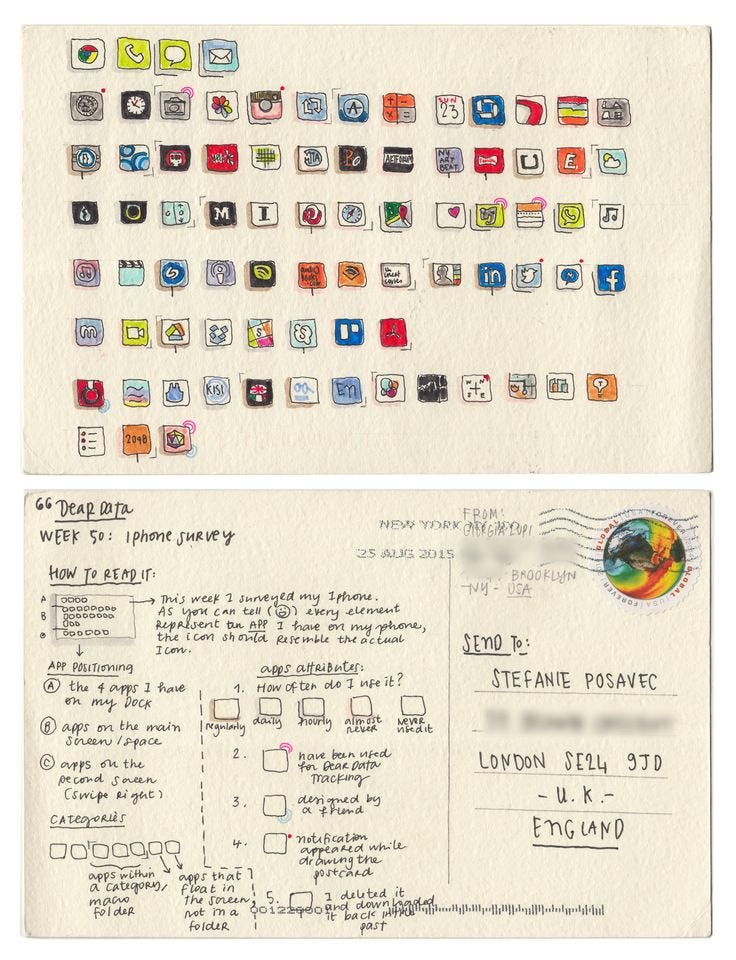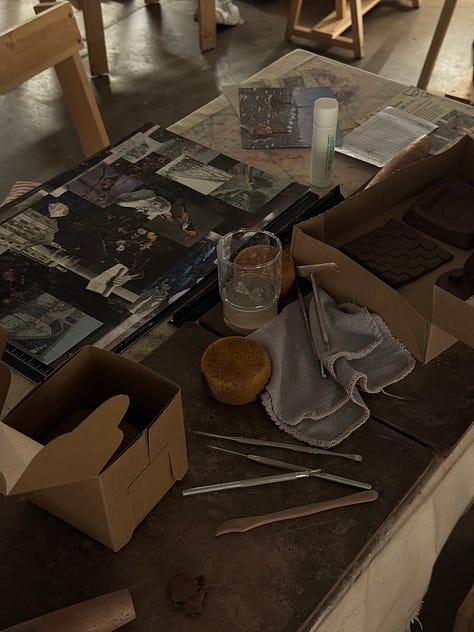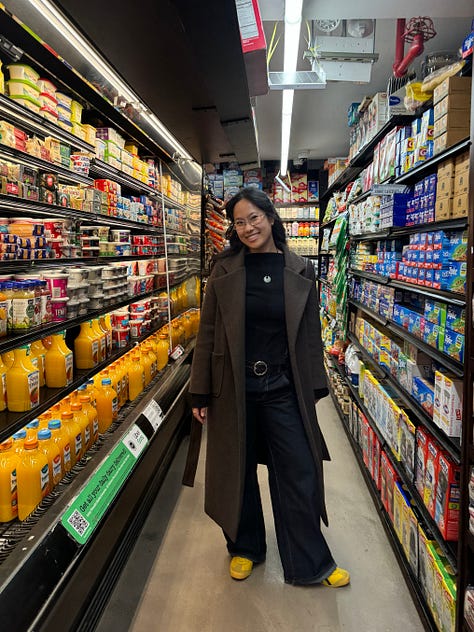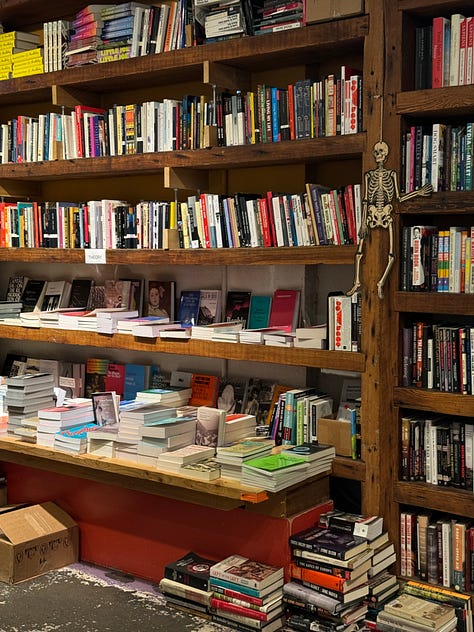im quitting social media & content creation is dead to me
on my latest revelation about social media, how im changing my relationship with social media, and the future of content creation (or lack thereof)
Just like any other day, I pulled up Facebook on my phone to the app showing me a post I made “15 years ago today.” Usually, I’m reminded of exactly how cringey I was in middle school between the posts that read “RAWR XD” and “like for a truth is =D” but on this day, Facebook showed me a status that read “logging onto Facebook from the hotel computer!” and I was instantly brought back to when I was twelve years old, staying in Marriotts for travel swim meets, and more importantly, a time when I only accessed social media in short bursts after waiting in line for the computer in the hotel lobby. This Facebook status was a stark wake-up call, highlighting just how much my relationship with technology has shifted. Instead of living my life and occasionally dipping into social media at a static desktop for an hour at most at a time, I’ve been spending most of my waking hours tethered to my phone, fighting my addiction to my phone for the opportunity to live my real life.
I’ve become exceptionally distasteful with social media, which is funny because five years ago, I wanted nothing more than to become a full-time content creator so I could spend all my time creating art and telling stories. So, what changed? The inflection point was in 2020 with the release and popularization of Tik Tok.
At the time, I had been creating YouTube videos for about a year, and with my big dreams of becoming a full-time content creator, I jumped onto the new, shiny app with hopes of building a larger online audience.
And it worked.
I learned the Tik Tok algorithm quick, I amassed 50k followers in a month, and then, 100k not much longer after. In parallel, I posted on YouTube every week, toyed with the idea of starting a podcast, and stayed active on Instagram. I put in 20 hours+ of work a week, on top of my 40-hour 9 to 5 job, and eventually, started to get reached out to for sponsored content by companies like Betterhelp, Ana Luisa, Merit, Mejuri, Penguin Publishing House, Sezane, Temu, and more.
Everything was going according to plan, yet as I posted more content, worked with more brands, and got closer to that full-time content creator dream, I realized the “artist” and “storyteller” job I thought I was signing up for wasn’t what I was getting. Instead, the job I was given was to grab people’s attention and sell products.

With Americans in $1.17 trillion consumer debt as of third quarter of 2024 (Federal Reserve Bank of New York), a global overconsumption problem, a mental health epidemic, and people more addicted to their phones than ever, I strongly feel I do not need to be contributing more sponsored and attention-grabbing content to the internet. From now on, I only want to create when I have something to say that has potential to change perspectives or help people better understand themselves and the world around them.
On top of feeling morally dirty for using my viewers trust to generate profit for companies, I, myself, was suffering as a content consumer. I was deeply addicted to my phone. My addiction to my phone started looking like unintentionally opening Instagram at the first moment of silence in a conversation, then unintentionally scrolling for 5 hours a day on Tik Tok (embarrassing I know), then overspending my monthly budget because I needed to try the new Brooklinen sheets that “get softer with every wash” or the “top 5 amazon gadgets to clean your kitchen”, and when I finally gathered enough self-control to close the apps, I was overcome with brain fog from the overwhelming amount of information and media I had just consumed.
The brain fog was the worst symptom of all and had the largest impact on my mental health. It took me years to notice the pattern, but one Sunday afternoon, after a particularly grueling Tik Tok hypnosis session I had fallen under, I finally closed the app. Setting my phone down and staring up my ceiling, I noticed that I couldn’t think straight. I did not know what I wanted to do with the rest of my Sunday, I felt a deep dissatisfaction with my life, and I couldn’t even remember any of the restaurant recommendations, interior design styling tips, or career mentorship advice I convinced myself I was learning from the content I was consuming. Then, the next thing I knew, I was staring back at my phone and Tik Tok was open again.
I used to blame myself for my lack of self-control to put my phone down, but over time, I realized the vast majority of people I knew suffered from the same supposed “lack of self-control”. This wasn’t just a personal failing anymore—it was the result of systems designed to exploit user attention.

Working at a big tech company now, I see the way success metrics are defined and then put on a pedestal for everyone to chase after. Those that successfully push whatever pre-defined metric closer to the goal are rewarded with bonuses and promotions. Without a doubt, these big social media companies are measuring success by user time spent on the app and user clicks on ads, so there are literally thousands of engineers incentivized by bonuses and promotions every single day to figure out ways to increase the amount of time and money you spend on these apps.

Do you remember when Instagram feeds used to be chronological and we would all scroll until we reached the last post we had seen the day before, then exit the app? To boost engagement, Instagram removed the chronological order, and now, we all spend a lot more time scrolling through our feeds endlessly, without a sense of how much content we have consumed.
Despite my angry tirade I just went on about social media, I don’t believe social media is inherently bad. Social media is a great tool for connecting with friends, finding creative inspiration, and creating online communities. The problem with social media lies in how these platforms are operating in a late-stage capitalistic economy where they are pressured to continuously increase revenue, often at the expense of the health of its users. So, it’s not that we need to eliminate social media, but we need to drastically change how we design social media and measure the success of a social media platforms. I asked ChatGPT to imagine what three features would be removed and added if social media companies measured success by user happiness instead of metrics like time spent on app and ad clicks, and here is what it said.
If social media platforms prioritized user happiness over metrics like time spent on the app and ad clicks, the platforms would likely undergo transformative changes in design, business models, and user experience. Here's how they might differ:
Features Removed:
Infinite Scrolling: Replacing it with a clear stopping point encourages mindful usage.
Excessive Notifications: Removing unnecessary alerts reduces anxiety and distraction.
Algorithmic Content Overload: Eliminating overly personalized feeds limits the echo chamber effect and doom-scrolling.
Features Added:
Usage Nudges: Gentle reminders to take breaks or log off after a set time.
Mood Check-Ins: Prompts to reflect on emotional well-being after engaging with content.
Curated Positive Spaces: Creating communities or features focused on uplifting, educational, or restorative content.
Unfortunately, I don’t foresee these social media companies changing their success metrics any time soon, so I had to take matters into my own hands. I’m going back to the queueing-in-the-hotel-lobby-for-facebook-time days by deleting all the social media apps off my phone and only allowing myself access from my laptop. Something remarkable about these social media platforms is that, for whatever scientific reason, the platforms are a thousand times less addicting on a large computer screen than when they fit into the palm of my hand.



I can’t deny the fact that social media has become an integral part of our society today from how we keep up with friends, find creative inspiration, learn, or even how we make reservations at restaurants (yes, I went to a cafe last week that only took reservations through Instagram DM’s). I don’t intend to cut social media out from my life completely, but I made this change about a month ago, and I’ve cut down by average screen time by 82% and I can hear my thoughts, ideas, and epiphanies again. I’ve used the abundance of time I’ve gotten in return to read more books, move my body, be outside, and experience real life.
I think the saddest part about this whole revelation is that my silly little dream of being able to create videos full time on the internet isn’t what it panned out to be, but I haven’t given up on finding ways to continue to tell stories and create art. I recently discovered this little platform, Substack, and I am obsessed. I pray it doesn’t fall victim to the capital hungry nature of other social media platforms and start preying on our attention, because right now, I am deeply enjoying the peace from the lack of advertisements being shoved in my face and the slow, deep, and thoughtful content being posted by creators.
If you followed me on YouTube, Tik Tok, or Instagram from before, firstly, thank you so much for watching and engaging with my content, it has truly meant the world to me. And secondly, as for the future of my content, I won’t be posting on Tik Tok, YouTube, or Instagram regularly anymore nor will I be doing any more sponsored content. I will be writing on Substack, supplementing my posts with the occasional film, audio file, or photo gallery. If you’d like to stick around, subscribe! It’s free! Or don’t - I’m not chasing numbers anymore. 💋










I really love this because you took the 'leaving social media' conversation to where I wish it would be. not throwing shade at all, but I feel like just leaving isn't going to solve a deeper, more worrisome problem that involves billions of dollars in investments to generate consumerism and apathy. I've been trying to do the same and only post or publish pieces I really resonate with or that really represent who I am as a writer. it's a small change compared to what I want to do (which is not having to post on social at all) but, for me, it means the world.
This is exactly what I needed to read before heading into my social media detox (I do the last three days of every month completely offline) in the hopes that when I do redownload it I'll spend less time glued to my screen. It's a work in progress but I truly look forward to the end of the month and everything my little social media detox brings.